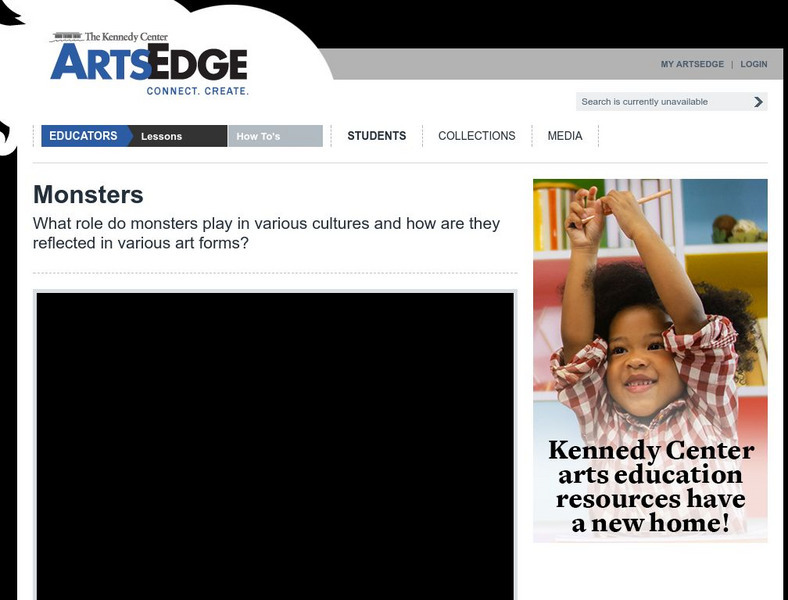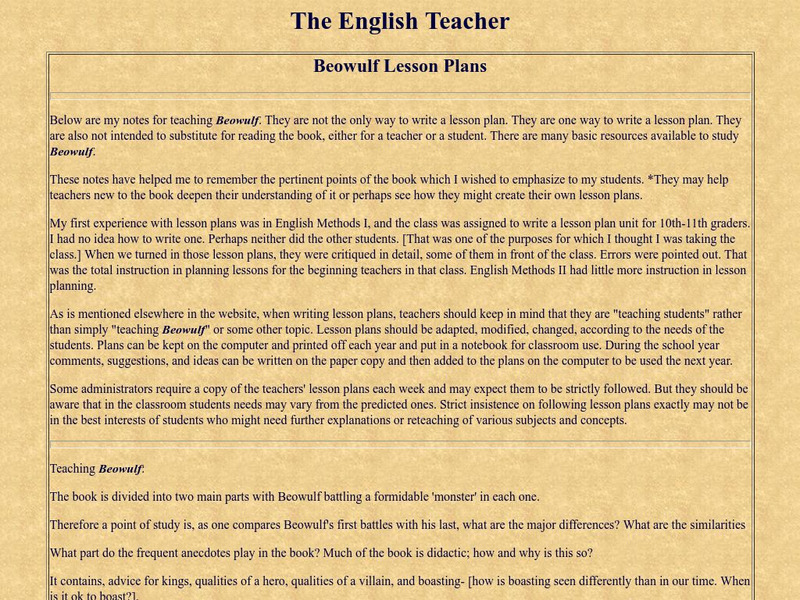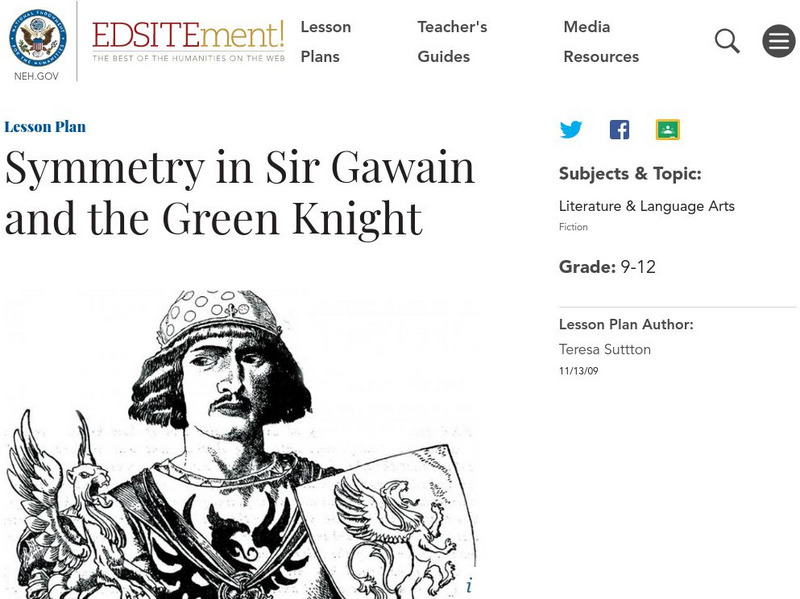Hi, what do you want to do?
Curated OER
Choices and Commitments: The Soldiers at Gettysburg
Young scholars describe the Gettysburg Campaign and the major actions of the armies during each day of the battle. They analyze the motives, actions, and experiences of several participants in the battle and evaluate the Gettysburg Address.
Curated OER
Recognizing Similies: Fast as a Whip
High schoolers review what they have already learned about similies and begin to engage with similies on a deeper and more abstract level as they create their own.
Curated OER
Introducing Tolkien and His Words
Students identify and describe the types of narratives that made Tolkien the writer he was. In groups, they examine different myths and folktale motifs. They discuss what Tolkien meant by "faerie" and "eucatastrophe." As a class, they...
Curated OER
The Concept of the Hero
Students explore the symbolic implications for the concept of the hero with a focus on the Beowulf theme. In this hero concept instructional activity, students find specific examples of monsters from Beowulf to complete the chart....
Curated OER
Recognizing Similes: Fast as a Whip
Students review basic knowledge of similes and engage with similes on a more abstract level. In this similes lesson, students define similes and identify examples. Students read and analyze the similes used in poetry by Derricotte,...
Curated OER
Know your Daemons
Students take a closer look at Pullman's The Golden Compass. In this current events lesson, students visit the film's interactive website and participate in a discussion about the nature of religion in the book and the film.
Curated OER
Kubla Khan Questions
In this reading comprehension activity, students respond to 5 short answer and essay questions based on the poem "Kubla Khan."
Curated OER
Review of Ancient Greece
Students create Greek gifts out of paper as a review for an upcoming quiz. They are to use a manila envelope to create what they felt was an important gift the Greeks gave. Once the gift has been created, it is placed into a big bag...
University of Groningen
American History: Outlines: Neoclassism: Epic, Mock Epic and Satire
Unfortunately, "literary" writing was not as simple and direct as political writing. When trying to write poetry, most educated authors stumbled into the pitfall of elegant neoclassicism. The epic, in particular, exercised a fatal...
ReadWriteThink
Read Write Think: Teaching the Epic Through Ghost Stories
This lesson plan uses the oral tradition of ghost stories (anchored in the Gothic) as a means of explaining the oral tradition of the epics. Included in the lesson plan is an overview, practice, objectives, resources, preparation, and more.
Exploring Ancient World Cultures
Exploring Ancient World Cultures: Epic of Gilgamesh
This site gives an in-depth essay exploring the Epic of Gilgamesh and its history.
Emory University
Emory University: Odyssey Online
Odyssey Online is a resource for both students and teachers as they explore world mythology in reading, writing, history, and art classes. Providing sections on Near Eastern, Egyptian, Greek, Roman, and African mythology, Odyssey uses...
Other
Art Arena: Origins and Basis of Ferdowsi's "Shahnameh"
This article is part of a review of the book, "Poet and Hero in the Persian Book of Kings," by Olga M. Davidson. The article's author is Mahmud Kianush, a renowned modern Iranian author. In the article, he discusses the historical...
Social Security Administration
Ssa: Upton Sinclair's Epic Plan for Social Reform
The Social Security Administration site presents the platform that Sinclair Lewis promoted in 1934.
Other
Iran Chamber Society: Hakim Abol Qasem Ferdowsi Tousi
A biography of the great 10th century Persian poet, Ferdowsi. The focus of this biography is on his writing of the epic poem, "Shahnameh" or "The Epic of Kings."
Museum of the City of San Francisco
Upton Sinclair: End Poverty in California: The Epic Movement
Upton Sinclair outlines how he would end poverty in his failed campaign for the governorship of California in a 1934 article for Literary Digest.
Luminarium
Luminarium: The Works of Milton
This site contains links to Milton's poems, sonnets, and prose, as well as complete text to his epic poems "Paradise Lost" and "Paradise Regained."
McGraw Hill
Glencoe Literature Library: "Beowulf" Study Guide [Pdf]
Introduce yourself to Anglo-Saxon literature by reading "Beowulf" and exploring its plot, themes, and characters with the help of this study guide. Check out a helpful "family tree" of the epic poem's characters, study new vocabulary...
John F. Kennedy Center
The Kennedy Center: Lesson Plan: Monsters
Following a reading of the epic poem Beowulf and the contemporary text inspired by it, Grendel, students create their own monster. Lesson plans provide assessment criteria, extension ideas, and a list of resources.
The English Teacher
The English Teacher: Beowulf Lesson Plans
These teaching notes for Beowulf provide a model for your own lesson plan and as a basic resource to study Beowulf. These notes can help you remember the pertinent points of Anglo-Saxon epic poem and help to deepen your understanding.
University of Chicago
Ancient Mesopotamia: Gilgamesh [Pdf]
Read aloud aversion of the Gilgamesh epic to the class. Stop before the ending and have students write their own climax to the epic. Compare student versions withthe actual ending.
Varsity Tutors
Varsity Tutors: Web English Teacher: J. R. R. Tolkien
Have you ever read any of J. R. R. Tolkien's work? Check out this site to learn more about Tolkien and his writings. This resource features lesson plans for "The Hobbit" and "The Lord of the Rings."
National Endowment for the Humanities
Neh: Edsit Ement: Symmetry in Sir Gawain and the Green Knight
In this lesson plan, young scholars will consider Symmetry in Sir Gawain and the Green Knight. Worksheets and other supporting materials can be found under the Resources tab. This lesson plan explores symmetry in the structure and themes...
University of Victoria (Canada)
The U Vic Writer's Guide: Literary Term: Drama
The University of Victoria's English department gives a comprehensive definition of "drama" in writing.
















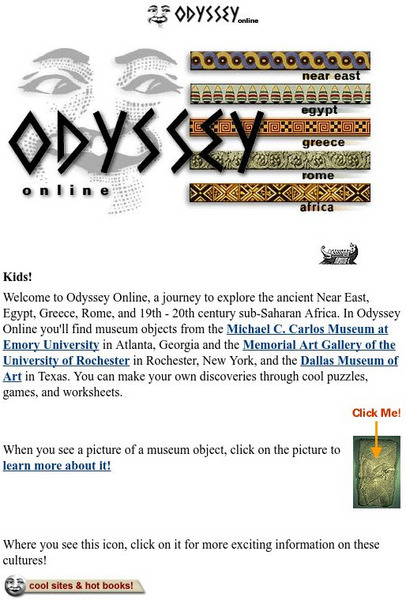
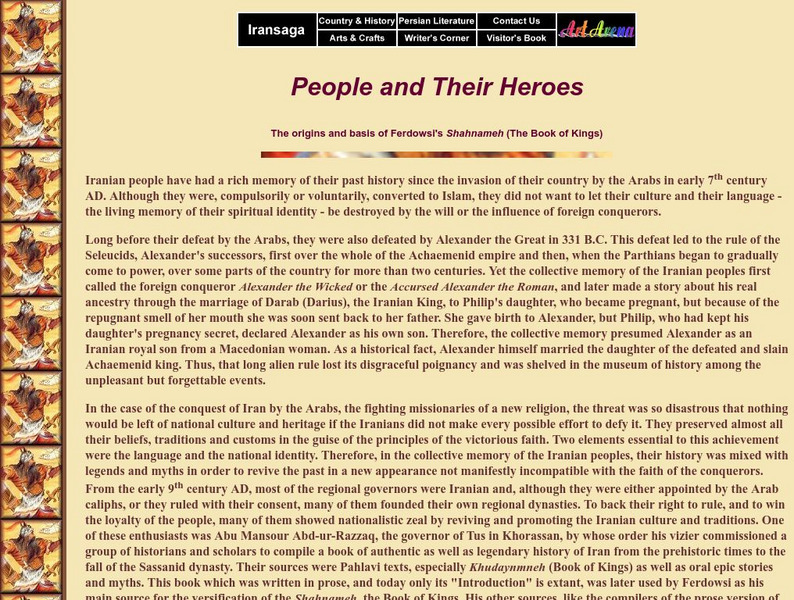


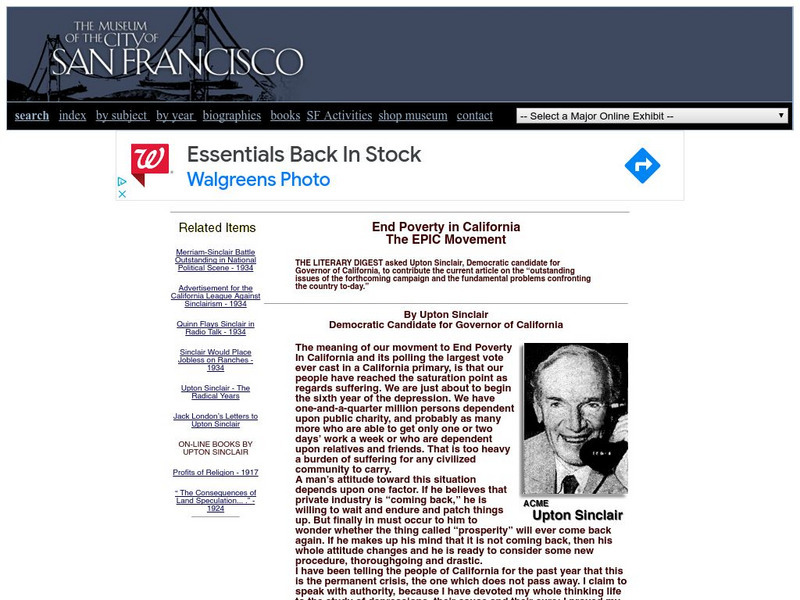

![Glencoe Literature Library: "Beowulf" Study Guide [Pdf] Unit Plan Glencoe Literature Library: "Beowulf" Study Guide [Pdf] Unit Plan](https://content.lessonplanet.com/knovation/original/103607-d0111859cbec85b5350a4d66d46ea8ee.jpg?1661498567)
